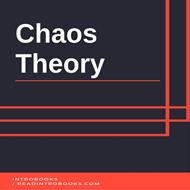Chaos Theory
Mathematics contains an important study field under the name Chaos theory. Chaos theory studies the concept and behavior of highly insensitive dynamical systems. It also studies behavior of dynamic systems in initial conditions, which often turns out to be super sensitive at a very high level. In Chaos theory, this concept is referred as Butterfly effect, which is the main field of study in this theory. From which, various branches are spread and constantly progressing and being developed. Various initial conditions are made because of some numerical errors in computations. These errors provide wildly diverging results for some dynamic systems. This makes it almost impossible to predict the behavior of long-term rendering. This happens even when behavior of this system is determined by initial conditions of very same system and no random elements are involved in process. Dynamic systems with such conditions are known as deterministic. In simple words, it can be said that such deterministic behavior or say nature of any kind of dynamic system is not able enough to make them predictable. Such deterministic behavior is known as deterministic chaos or just chaos. The whole theory of chaos is based on this simple fact. Each concept of chaos theory is based on these handful statements. Thus, an attempt was made by Edward Lorenz in order to describe the main concept of chaos theory in a single definition. According to him: “Present can determine the future, but approximate present cannot determine approximate future.” Many natural systems such as weather, climate, etc follow the rules of chaos theory. They possess the same chaotic behavior as described in chaos theory. Not only natural system, but some artificial systems, or system that contains artificial components also follows the same chaotic behavior. Road traffic is a great example of such artificial system since it contains multiple artificial components that are not a part of nature. Chaotic mathematical model is analyzed in order to understand such behaviors of natural and artificial dynamic systems. For such analyzing process, analyzing techniques such as recurrence plots and Poincare maps are implemented. Following is a list of fields and disciplines in which chaos theory is applied or is applicable: Meteorology Sociology Physics Environmental science Computer science Engineering Economics Biology Ecology Philosophy These are the field, in which chaos theory has been successfully applied, that too with expected results. There are many other fields, in which research is still going on about application of chaos theory.
-
Autore:
-
Durata in (hh:mm:ss):00:39:26
-
Anno edizione:2016
-
Editore:
Formato:
Gli Audiolibri venduti dal nostro sito sono in formato MP3 e protetti da un DRM proprietario Kobo.
Compatibilità:
Gli Audiolibri venduti dal nostro sito possono essere ascoltati sul tuo smartphone o tablet tramite la APP gratuita Kobo Books scaricabile da iOS o Android. Gli Audiolibri non possono essere scaricati in locale o trasferiti su un client di ascolto diverso da quello fornito tramite Kobo. Non è possibile ascoltare gli audiolibri con la Kobo APP Desktop. Puoi ascoltare gli Audiolibri tramite determinati eReader Kobo, utilizzando cuffie o casse con Bluetooth. Visita la pagina degli eReader per avere maggiori dettagli.
Cloud:
Gli Audiolibri venduti singolarmente dal nostro sito sono immediatamente sincronizzati sul tuo account personale in automatico. Successivamente all'acquisto, sono subito disponibili all'ascolto tramite i client di lettura Kobo compatibili.
Clicca qui servissero ulteriori informazioni



